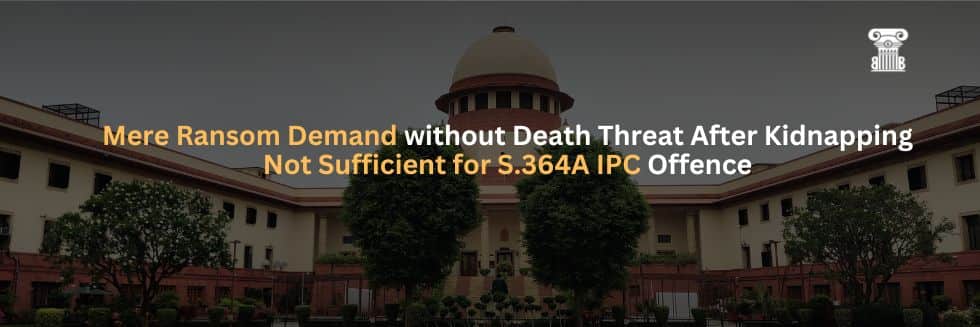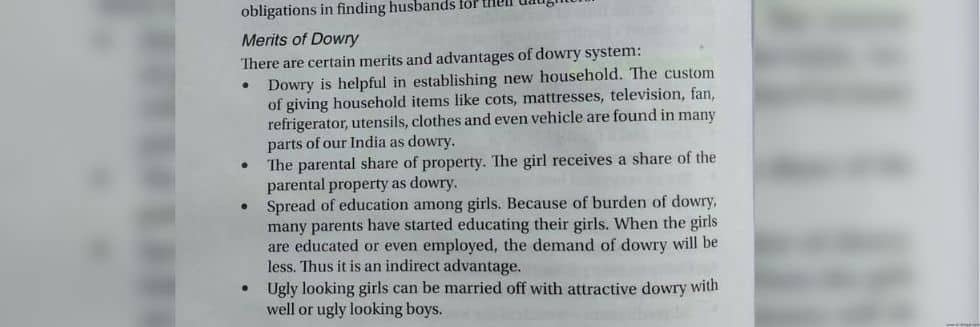In the case of William Stephen v. The State of Tamil Nadu and Anr., the appellant was accused of kidnapping a child and demanding a ransom of Rs. 5 Lakhs from the child’s parents for his release. However, the Supreme Court clarified that a mere ransom demand without an accompanying threat of death or harm to the kidnapped person is not sufficient to establish an offence under Section 364A of the Indian Penal Code (IPC). After reviewing the testimonies of prosecution witnesses including the victim child and their parents, the Court found insufficient evidence to establish a connection between the ransom demand and the threat of death. Therefore, the conviction under Section 364A IPC was set aside. However, the Court upheld the conviction for the lesser offence of kidnapping as defined by Section 361 of IPC punishable under Section 363 of IPC.
CASE DETAILS:
William Stephen v. The State of Tamil Nadu and Anr.
Criminal Appeal No. 607 of 2024
Supreme Court
Coram: Justices Abhay S. Oka and Ujjal Bhuyan.
BRIEF FACTS:
- The prosecution alleged that the appellant-accused kidnapped a child and demanded a ransom of Rs. 5 Lakhs from the child’s parents for his release. This created a reasonable fear in the parents’ minds that the accused might harm or kill their son.
- Thus, the elements of Section 364A IPC pertaining to kidnapping for ransom were satisfied leading to the accused’s conviction.
- Both appellants were convicted under Section 364A read with Section 34 of the Indian Penal Code, 1860 and sentenced to life imprisonment.
- They have filed appeals against the judgment dated July 27, 2016 issued by the Madras High Court which upheld their conviction and sentence.
OBSERVATIONS:
To establish an offence under Section 364A IPC (Kidnapping for Ransom), the prosecution must prove two key elements. Firstly, there must be a kidnapping or abduction of a person followed by their detention. Secondly, this act must be accompanied by a threat to cause death or hurt to the kidnapped person.
Upon reviewing the testimonies of prosecution witnesses including the victim child and their parents, the Supreme Court concluded that the prosecution failed to establish a connection between the alleged ransom demand and the threat of death. As a result, the Court found insufficient evidence to convict the accused under Section 364A IPC. Consequently, the Supreme Court set aside the conviction under Section 364A but upheld the conviction for the lesser offence of kidnapping as defined by Section 361 of IPC punishable under Section 363 of IPC.
JUDGEMENT:
The Supreme Court acquitted the accused who was charged under Section 364A of the Indian Penal Code which pertains to kidnapping for ransom. The Court reached this decision after determining that the prosecution did not provide sufficient evidence to establish an immediate threat of death to the kidnapped person from the accused but upheld the conviction for the lesser offence of kidnapping as defined by Section 361 of IPC punishable under Section 363 of IPC.






